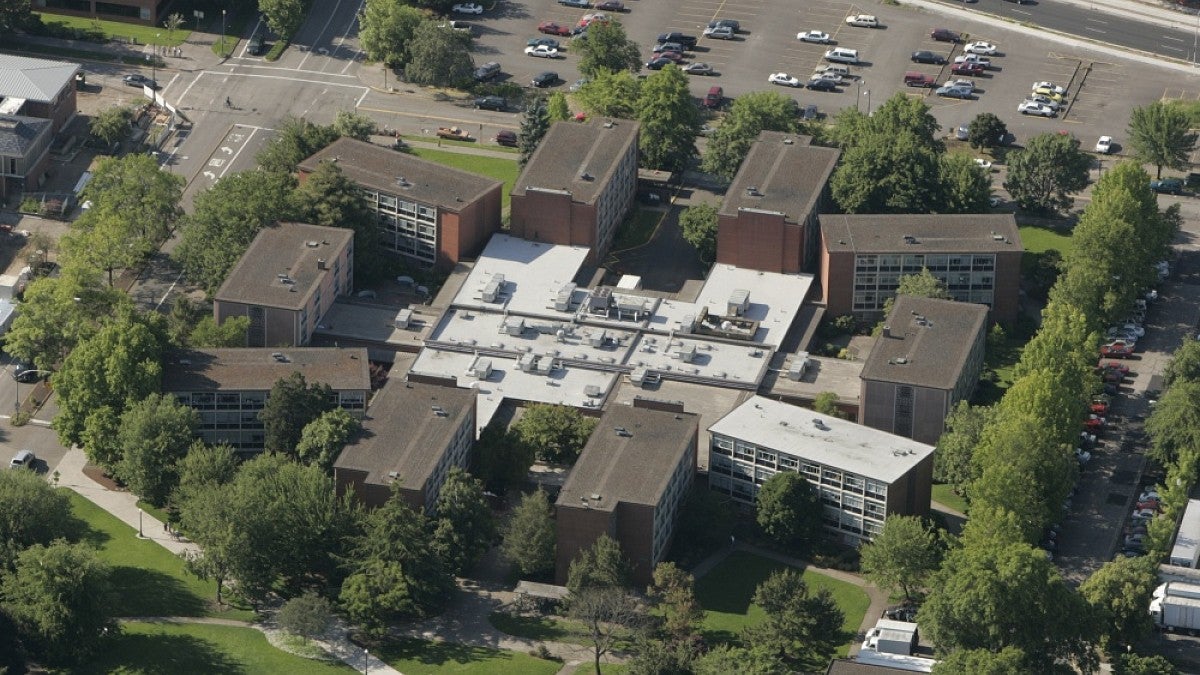A UO residence hall is closer to having a new name following the appointment of a committee to accept nominations and recommend a permanent replacement.
Known temporarily as Cedar Hall, the wing in the Hamilton Housing Complex formerly known as Dunn Hall was denamed by the Board of Trustees of the University of Oregon following a recommendation from UO President Michael H. Schill. The new committee is charged with seeking broad response on a new name.
The group — made up of students, faculty, staff and local community members — will take nominations and ultimately recommend three individuals after whom Cedar Hall might be permanently named.
Students, faculty, staff, alumni, community members and any other interested people are invited to review the criteria and make naming suggestions. Nominations will be accepted using this input form through April 15.
The denaming process began after the Black Student Task Force challenged the university to confront historical racism. The former Dunn Hall was named for Frederick Dunn, an early professor at the UO who also was the head of a hate group that supported racism and violence against African-Americans, Catholics and Jews.
The Cedar Hall Naming Committee will vet all nominations using a set of criteria provided by the president and university policy. In his charge to the committee, Schill said he met with the Black Student Task Force and asked them to draft principles, which served as a basis for his criteria along with the principles used in the denaming analysis.
“I look forward to seeing a process unfold in which we can all learn about and celebrate some of our most illustrious alumni, faculty and friends,” Schill said. “Increasing diversity and inclusion at the University of Oregon are among our most important objectives. Part of being an inclusive university is to recognize the contributions of our black alumni and friends.”
Schill charged the committee with seeking campus and stakeholder comment and ensuring thorough research is conducted on nominees.
University policy requires, in part, that buildings be named posthumously in recognition of “unusually meritorious service to the university or to society at large” and for providing “inspiration in advancing the values and mission of the university.”
The additional criteria include being an individual:
- Who has made significant contributions in service, support or honor to the UO or to the state of Oregon.
- Who has an extraordinary record of leadership and commitment to advancing justice and equity for black people in Oregon.
- Who has demonstrated evidence of overcoming oppression and discrimination.
- Who strongly advocated for the pursuit of knowledge and advancement of higher education.
- Whose own work has led to an inclusive and equitable UO campus.
- Whose work has led to achievements of extraordinary and lasting distinction.
- Who has helped black students or community members achieve success in higher education and the pursuit of careers.
The committee is expected to complete its work by mid-May. The president will make his recommendation to the board of trustees for consideration at its early June meeting.


